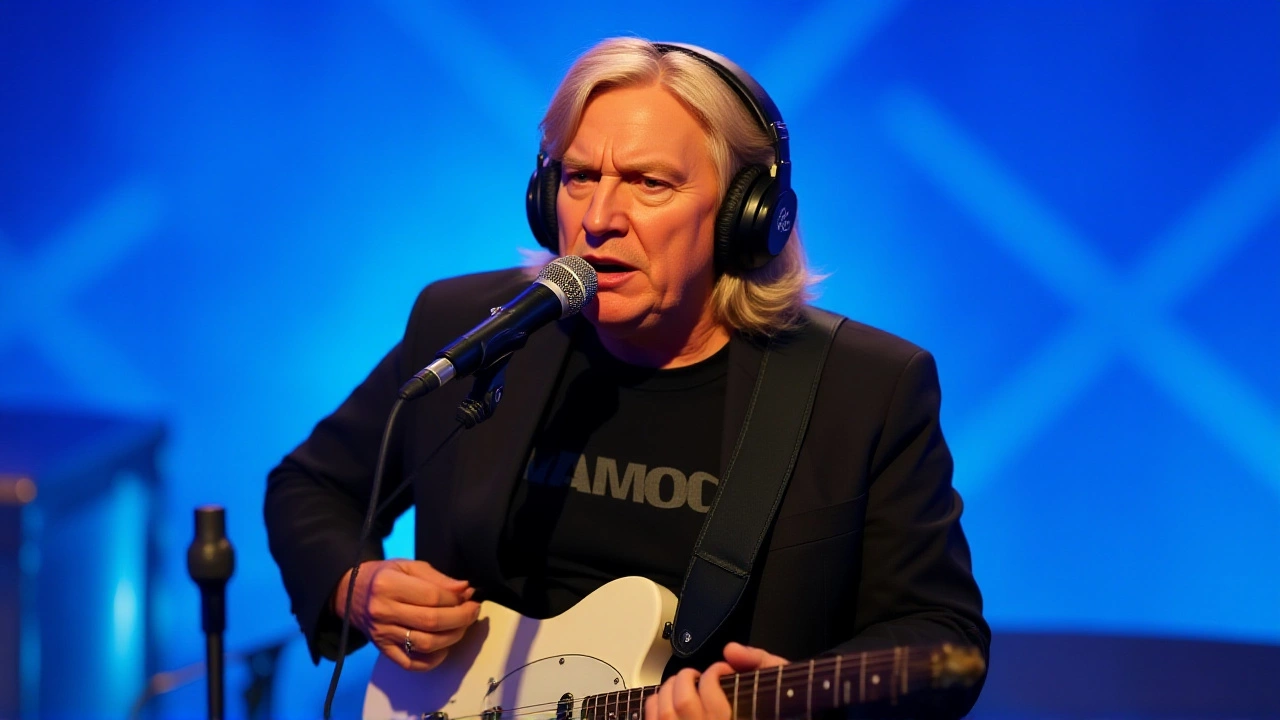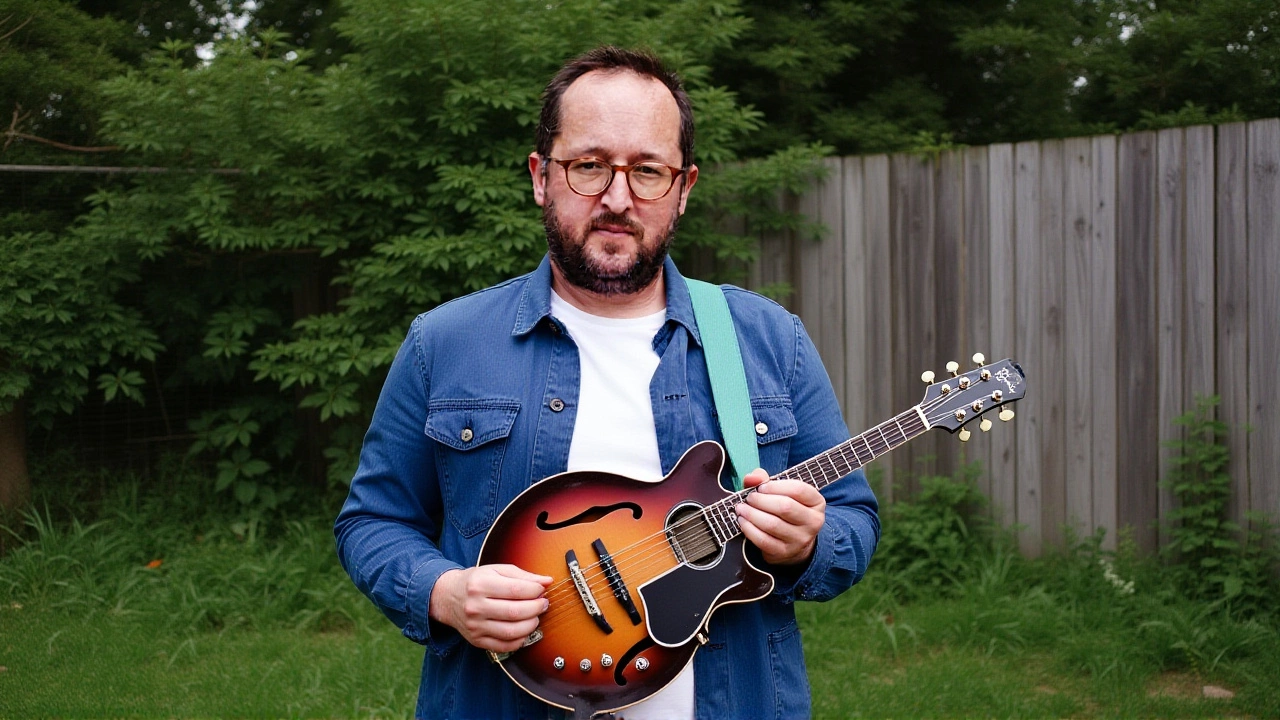On April 4, 2025, Joe K. Walsh, the Portland, Maine-based mandolinist revered for his tone, taste, and quiet brilliance, dropped 'Trust and Love' — an album that doesn’t shout, but whispers directly into your soul. Ten tracks. No vocals. Just instruments breathing together, listening, reacting. In a world drowning in noise, Walsh’s latest work feels like a deliberate act of resistance — not through volume, but through stillness. The result? A record that lingers longer than most hits ever could.
A Musical Conversation, Not a Solo
‘Trust and Love’ isn’t just an album — it’s a dialogue. Joe K. Walsh plays mandolin, mandola, and octave mandolin, but he’s quick to say the music belongs to the whole group. Rich Hinman weaves guitar, lap steel, and pedal steel like smoke through a pine forest. Zachariah Hickman anchors everything with bass that hums more than it thumps. Dave Brophy’s drums and percussion? Barely there — a brush on snare here, a cymbal sigh there. And then there’s the fiddle: John Mailander on nine tracks, Bobby Britt on track two, ‘Juneau What It Means to Miss Alaska?’ — a piece whose title alone feels like a poem half-remembered.
The timing is precise: ‘Milkweed Star’ (3:52), ‘Clouds’ (5:04), ‘I Made My Song a Coat’ (2:19) — each track a moment captured, not constructed. No filler. No fluff. Just space, silence, and the space between the notes.
Less Is More — And It’s Revolutionary
Walsh calls it ‘an understated record for an over-stimulating time.’ That’s not marketing. That’s manifesto. In an era where algorithms push louder, faster, more — Walsh offers quiet. He doesn’t just play mandolin; he lets it breathe. His tone is warm, rounded, unhurried. Critics have called it ‘contemplative,’ ‘reassured,’ ‘open.’ One reviewer at Redline Roots described the opening track as ‘vast, deep pools of guitar reverb setting a palette for coursed strings to ring just above their surface.’
It’s not just the sound — it’s the intention. Walsh told Bluegrass Jam Along in July 2025: ‘What comes out may be dramatically different [with different musicians], but hopefully you focus on the shared value system.’ That’s the core. It’s not about who plays the fastest arpeggio. It’s about who listens. Who waits. Who trusts.
A Teacher Who Teaches Joy
Walsh’s influence extends far beyond the studio. He’s been teaching mandolin at Berklee College of Music for four years — a fact that comes up repeatedly in interviews, not as a credential, but as a calling. One former student, now a journalist at The Bluegrass Situation, wrote: ‘He’s always emphasized that the point of playing music is to bring joy to ourselves and those who are listening to it.’
That philosophy echoes through every track. No ego. No posturing. Just presence. Even his bandmates reflect it. Darol Anger, the fiddler who once called Walsh ‘one of the best mandolinists I’ve ever played with,’ now shares the stage with him in Mr Sun, the modern acoustic supergroup that also includes guitarist Grant Gordy and bassist Aidan O’Donnell. They don’t play to impress. They play to connect.

Live Preview: The Night It All Came Together
Before the album dropped, fans got a rare glimpse at the Peghead Nation 10th Anniversary Showcase in November 2024. Walsh brought out Scott Nygaard (Peghead Nation co-founder), Alisa Rose (fiddle instructor), and Mark Schatz (bass) to perform ‘Trust and Love’ and ‘Juneau’ live. No rehearsals. No setlists. Just musicians trusting each other in real time.
‘It was like watching a conversation between old friends,’ one attendee wrote. ‘You could see the glances, the slight nods — the unspoken agreement to let the music decide where it wanted to go.’
Why This Matters Now
There’s a quiet revolution happening in acoustic music — not in the flashy solos or the viral TikTok covers, but in the spaces between. Walsh’s album arrives at a cultural inflection point: people are tired of being sold something. They’re hungry for sincerity. For stillness. For music that doesn’t demand attention — but earns it.
‘Trust and Love’ isn’t just an album for mandolin lovers or bluegrass fans. It’s for anyone who’s ever felt overwhelmed. For anyone who needs to remember that beauty doesn’t need to scream. That connection doesn’t need volume. That sometimes, the most powerful thing you can do is simply listen.

Background: The Making of a Modern Acoustic Voice
Walsh’s journey began in Maine, but his sound has traveled far. He’s collaborated with Brittany Haas, Mike Block, Danny Barnes, and Joy Kills Sorrow. His playing — precise yet fluid, emotional yet restrained — has drawn praise from legends like David Grisman, who called him a ‘wonderful mandolin player.’
His work at Peghead Nation — where he teaches mandolin and octave mandolin — has helped shape a new generation of players who value expression over technique. He doesn’t teach licks. He teaches listening.
And now, with ‘Trust and Love,’ he’s given the world a blueprint: a way forward, not through complexity, but through clarity. Through trust. Through love.
Frequently Asked Questions
How does 'Trust and Love' differ from typical bluegrass or acoustic albums?
Unlike most acoustic records that emphasize speed, technical runs, or vocal harmonies, 'Trust and Love' strips everything down to the essentials: tone, space, and interplay. There are no solos meant to dazzle — only conversations. The album’s tracks average under four minutes, with minimal percussion and no vocals. Even the fiddle, often a lead instrument, acts as a counterpoint, not a spotlight. It’s more akin to chamber music than bluegrass — intimate, deliberate, and deeply human.
Who are the key musicians on 'Trust and Love,' and how do they contribute?
Joe K. Walsh leads on mandolin family instruments, but the album’s magic lies in the ensemble. Rich Hinman’s lap and pedal steel add ambient textures without overpowering. Zachariah Hickman’s bass provides subtle motion, never locking into a predictable groove. Dave Brophy’s percussion is barely there — brushes, shakers, the occasional snare tap — creating rhythm through implication. Fiddlers John Mailander and Bobby Britt weave melodies that feel like memories, not performances. Together, they form a unit that listens as much as it plays.
Why was the Peghead Nation Showcase important for this album?
The November 2024 showcase wasn’t just a preview — it was a live test of the album’s core philosophy. With Scott Nygaard, Alisa Rose, and Mark Schatz joining Walsh, the performance proved the music could exist outside the studio, without rehearsal or fixed arrangements. It demonstrated that the ‘trust’ in the album’s title wasn’t metaphorical — it was practiced, real, and transferable. The audience witnessed how musicians can create something new in real time, simply by listening.
How does Joe K. Walsh’s teaching at Berklee influence his music?
Teaching at Berklee College of Music has reinforced Walsh’s belief that music’s purpose is joy, not perfection. He doesn’t focus on scales or speed — he teaches students to hear the silence between notes, to value the emotional weight of a single sustained tone. This mindset directly shaped 'Trust and Love': every note feels chosen, not rushed. His students, many of whom now play professionally, carry that philosophy into their own work, making Walsh’s influence ripple far beyond his recordings.
What makes 'Trust and Love' relevant to listeners outside the acoustic music scene?
In a time of constant stimulation — endless notifications, algorithm-driven playlists, hyper-produced tracks — 'Trust and Love' offers something rare: permission to slow down. Its quietude resonates with anyone feeling emotionally overwhelmed. The album doesn’t ask you to analyze it; it asks you to feel it. That’s why it’s finding listeners in mindfulness communities, indie film soundtracks, and even therapy playlists. It’s not genre music. It’s human music.
What’s next for Joe K. Walsh after 'Trust and Love'?
Walsh has hinted at a possible live tour with the 'Trust and Love' ensemble, possibly including recordings from intimate venues like libraries and bookstores — spaces that match the album’s tone. He’s also developing a new Peghead Nation course focused on ‘listening as technique,’ which will explore how to play less while communicating more. And while he hasn’t confirmed it, sources close to him suggest he’s quietly writing material for a follow-up album — one that may incorporate field recordings from Maine’s coastal forests.
